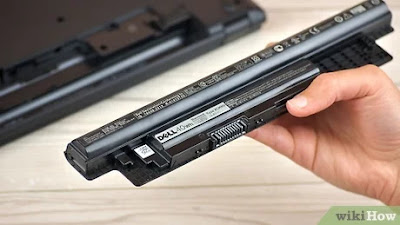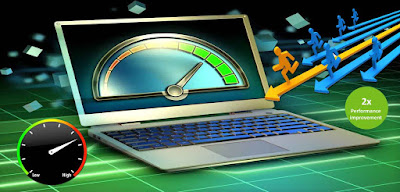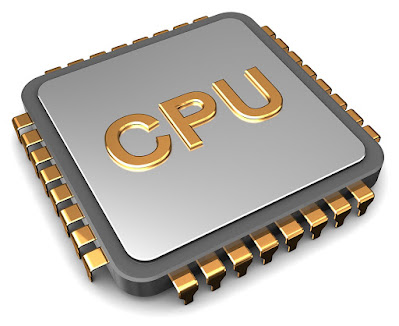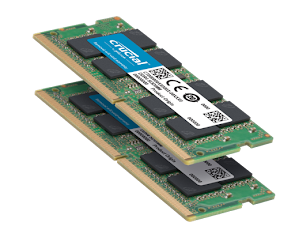Things To Consider Before Buying a Laptop
There are many things you should know to buy a cheap and best laptop. Here are some tips for you, to make your purchase the best one ever.
What kind of laptop is best for me?
There are many types of laptops and all have their advantages. Laptops can be broken down into four main categories: conventional desktops, 2-in-1s, Chromebooks, and tablets. The first two are the most popular options for most people, while the latter two are more focused on specific needs (eBooks or drawing).
Conventional desktops offer better performance for power users but may not be as portable. They’ll also last longer than any other option before needing a battery replacement whereas 2-in-1s need to be plugged in at all times to keep running even when they’re in use.
Conventional desktops are best for people who have at least a passing interest in the computer and enjoy tinkering with hardware. If you just use a computer to browse the internet and read your email, these devices aren’t worth the extra money.
2-in-1s are portable enough to be tablets most of the time but can also function as laptops when needed. They go by many names, including “detachable”, “clamshells”, and “hybrids”.
All of these devices operate as both tablets and notebooks, unlike Chromebooks or iPads which don't need much set up to work well as a tablet or laptop respectively.
While all of these devices can be bought for as little as $200, if you want to get the best deal you’ll want to avoid the most common ones: Chromebooks and iPads.
Chromebooks are cheap laptops with a browser-based operating system used to serve up web pages. They don't play games or use media very well, but they are more than adequate for basic tasks like email and browsing the web. Chromebooks also tend to receive updates less frequently, which can make them hard to keep running smoothly. They're also prone to crashing on-demand or on their own, which leaves users with no way of restarting the computer without opening an app.
iPads are also great for basic tasks but come in two versions: iPad and iPad Pro. iPads offer a lot of basic features at a low price like 2-in-1s and Chromebooks, but they use touchscreens rather than physical keyboards. iPads will get software updates more often than Chromebooks, but the operating system isn’t as customizable.
What kind of battery life should I expect?
All batteries degrade over time and will eventually need to be replaced, so devices with less battery capacity tend to last longer than those with a lot of feature-laden computers. But what kind of battery life should you expect for your laptop? It's tough to say because features like screen size and graphics card will affect the longevity of your battery. If you're worried about how long your battery will last on a single charge, there are some other factors you can consider which might ease some of that worry. For instance, manufacturers are always striving to make laptops more energy-efficient and power-effective so users have greater flexibility when it comes to running their device on lower power options like the Battery Saver option.
What kind of performance should I expect for my laptop?
So you're out buying a laptop for the very first time, feeling both excited and terrified at the prospect of purchasing such an important and expensive item. And while all your friends have told you to do your research, it turns out that everyone has different opinions on what type of performance is best for what criteria. So which is it? Well, we've gone out and done our homework beforehand so you don't have to.
You're here because you want to know what your laptop can handle, but if you're anything like me then you probably have a little bit of a budget in mind. And while some of us might exclaim "throw money at the problem!" and "just put everything on ultra!" (despite never having played that game on ultra before), it still might be best to know exactly what you're getting out of your purchase.
So read on to find out!
Note: This is not a guide for gaming laptops. That will be covered later on.
First off, I'm going to compile a list of what I would consider being the most popular types of laptops and their general performance, along with a quick guide on what I'd say make them good for.
Example 1: Mid-Range Laptop
Nothing too fancy here. This is a laptop that performs well for almost anything you do but has no major strengths for anything in particular. It's average in everything except price.
This is the perfect laptop if you do not have any major requirements for your machine, or if you just want something that can play some low-end games while still being able to run office applications effectively (not to mention this will probably be the cheapest laptop out there).
Example 2: Gaming Laptop
This is a laptop that is specifically designed and marketed towards gaming but is still comfortable to use for the general public. Both the processor and graphics card will be designed from the ground up for high CPU utilization and fast graphical output. The primary function of these processors is to drive your games as fast as possible by crunching numbers, while also trying to keep those graphics cards at 100% usage – both of which they will undoubtedly do effectively. Typically, this type of machine will not try to multitask (except maybe in some light system utilities), so you'll be able to run multiple things at once without it getting too slow if you only have 1 thing going at a time anyway.
Now, the bad news: since this is designed for gaming, and built to run multiple things at once, the price will be somewhat higher than a regular laptop. These are typically the most expensive laptops you'll find on the market today.
I would say this is a good choice if you have high-end games that require advanced hardware to run and you either don't want to build or don't want to deal with a desktop (along with the associated cost).
Example 3: Business Laptop
This is a laptop that was designed with one goal in mind: making your life easier as a business person. It will run plenty of applications without incident, and multitasking shouldn't be too much of an issue. Since people tend to use business laptops for their work, this means that they need one that is light and portable – which means that the casing will be made out of all plastic parts to keep it lightweight. This also has the added benefit of keeping it cheap at the same time.
The downside here is that since this was built with business in mind, you can expect a lot less power than a normal laptop would have. After all, it's not like businesses are going out and buying top-of-the-line systems – they need something inexpensive and simple with good battery life.
Now, all that being said, if you have a job that doesn't require you to do many heavy-duty tasks then this is a good choice. And don't worry about it being slow – since it's only meant for business use, the computer itself will be very efficient and won't overwork itself by trying to do too much at once.
Example 4: Hybrid Laptop
I'm lumping these together because hybrid laptops are sort of a mashup between the above three categories. They have the lightweight and portability of the business laptop but are powerful enough to enjoy games from time to time. In addition, they still have those high-resolution screens which make watching videos and browsing the web easy on your eyes.
While all of these things are nice, I'm still getting pretty mixed reviews on the hybrid laptops. It depends a lot on the exact model you get, as well as what brand you're going for. Most of them seem to be more expensive than your standard laptop out there, and they don't quite have the functionality that a standard laptop has. So which is it?
My opinion is that unless you need a hybrid then I would not consider buying one. Why? Because hybrid computers are meant to be extremely specialized in their functions, especially with graphics cards and hardware in general. If you need to do general multi-tasking and a little bit of gaming on the side then this is the computer for you. If not, you're better off getting something more powerful.
Note: I'll talk more about gaming later on. For now, I just wanted to list some of the most popular machine types so that we can get a rough idea of where we're going here.
Let's take a look at some terms that I'm going to mention throughout this write-up.
A CPU (Central Processing Unit) runs your applications and processes anything you tell it to do – including running games (more on that later). It looks at the code you're writing and uses that to make the computer output what you want it to do. It is considered the "brain" of your computer, which makes sense because it decides what to do next.
A GPU (Graphics Processing Unit) is the brains behind your graphics on your computer. It takes the artwork and makes it appear on your screen as intended. It also handles all of the lightning and shading and such so that everything looks nice on your screen. Without a powerful GPU, you will have graphics lag or stuttering when playing games.
A RAM (Random Access Memory) is your computer's short-term storage. This is where all of its data and programs get stored so that they can be loaded the moment the user wants them. Without a big enough RAM, you will run out of space very quickly – regardless of how large your hard drive is.
4GB vs 8GB: As you know by now, most computers have either 4 or 8 GB RAM. The major difference comes in when you're looking at a dual-channel setup (like we saw with the i7-7700K). While both these setups have an effective 8 GB total, the 4 GB setup is better for gaming as it allows it to move information faster while using less battery power.











Posting Komentar
Posting Komentar